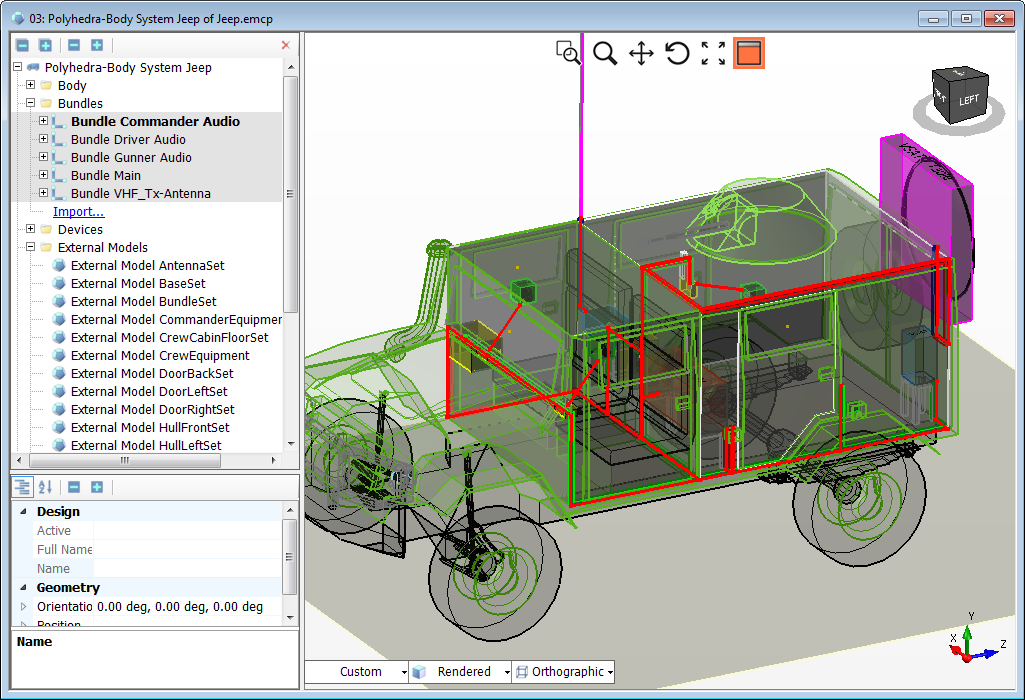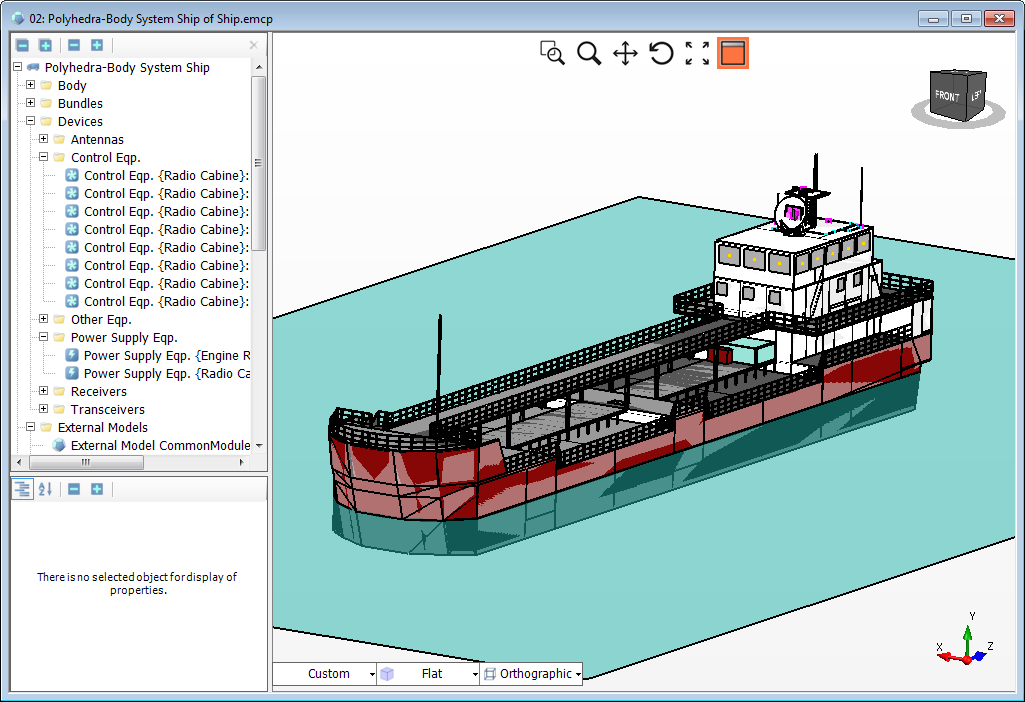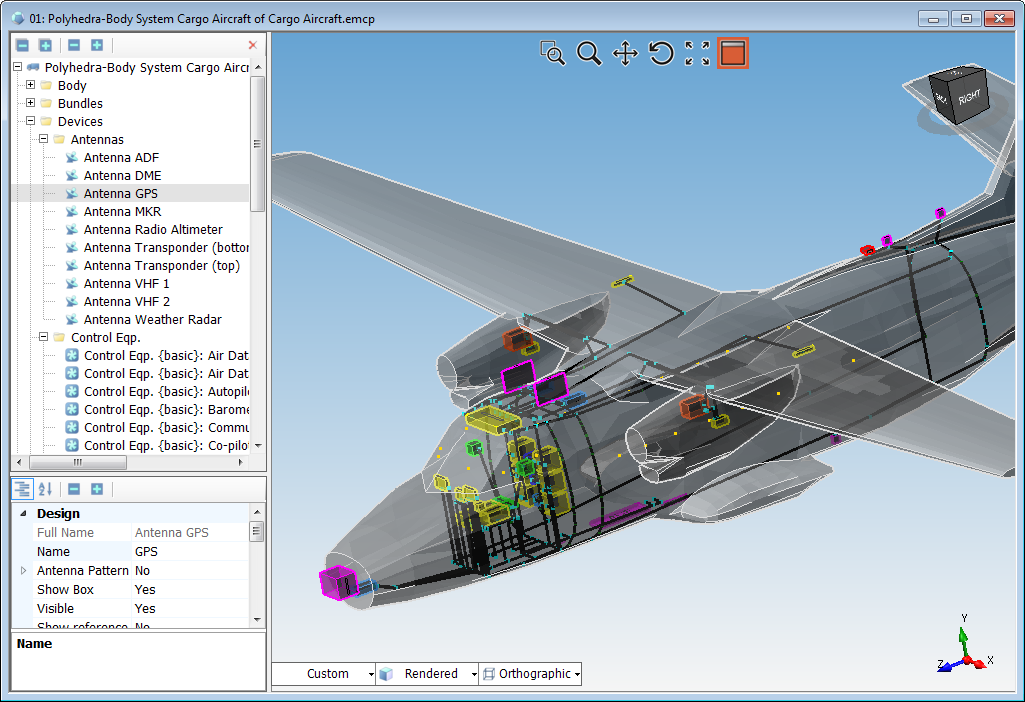EMC-ANALYZER – SPECIALIZED EXPERT SYSTEM FOR EMC ANALYSIS AND DESIGN OF COMPLEX LOCAL ON-BOARD AND GROUND-BASED RADIOELECTRONIC SYSTEMS
|
|
|
|
PURPOSE
EMC-Analyzer – specialized expert system for the analysis and design of electromagnetic compatibility (EMC) of radioelectronic equipment of complex local on-board and ground-based systems at all stages of life cycle: design, production, implementation, modernization
APPLICATION AREA
- Intrasystem EMC analysis, design, and maintenance in on-board systems (aircraft, helicopter, missile, satellite, ship, vehicle, etc.) taking into consideration: various on-board radio and electronic equipment (radio systems, computers and control systems, data-measuring systems, power supply equipment, etc.); different on-board spurious electromagnetic couplings (“antenna to antenna”, “field to antenna”, “antenna to wire”, “wire to wire”, “field to wire”, “case to case”, “field to case”); external electromagnetic environment (EME).
- Intrasystem EMC analysis, design, and maintenance in local ground-based systems (building, antenna tower, etc.) taking into consideration: various radio subsystems of different services (radio communication, radar, radio navigation, radio monitoring, etc.); spurious electromagnetic couplings of “antenna to antenna” type; external EME.
- Intersystem EMC analysis, design, and maintenance in spatially-limited ground/water areas and aggregate systems (airport, seaport, military base, radio communication and control center, campus, etc.; several aircrafts, helicopters, ships, etc.) which may contain: several on-board systems; several ground-based systems; pieces of vegetation.
- Analysis of electromagnetic ecology and electromagnetic safety of radio transmitters located in a spatially-limited ground/water area by calculation of the total electromagnetic field intensity distribution over the area.
FUNCTIONALITY
- Linear analysis of intrasystem and intersystem EMC which indicates the presence, sources, and propagation paths of the linear interference and calculates the interference intensity.
- Linear adjustments (equipment specification generation) calculates changes in characteristics of equipment for eliminating the linear interference (i.e., for solving the linear EMC problem).
- Linear analysis of electromagnetic field intensity: calculation of the field distribution in the spatially-limited ground/water area.
- Nonlinear EMC analysis which indicates the presence of the nonlinear interference (intermodulation, desensitization, cross-modulation, reciprocal mixing, etc.) in radio receivers and calculates the nonlinear interference intensity.
- Identification of the nonlinear interference sources: finds the external sources creating the nonlinear interference in radio receivers
ADVANTAGES
- Original “worst-case” models of all available types of spurious EM couplings of different nature for extended frequency ranges (up to 40 GHz).
- Essentially higher accuracy provided by the essentially more (100-1000 times) detailed frequency discretization.
- Developed original system criteria of EMC in conditions of joint influence of many (thousands) EM fields and EM couplings of different nature.
- Guaranteed detection of potential accident EM destructions in local on-board / ground or terrestrially-distributed radioelectronic systems.
- Calculation the recommended adjustments in the equipment spectra and/or susceptibility characteristics for solving the linear EMC problems.
- All the advantages inherent in DNA EMC technique, including Extra-high computational efficiency and accuracy, ultra-wide frequency band and with an ultra-high dynamic range of nonlinear EMC analysis.
DEVELOPER
R&D Lab 1.7 "Electromagnetic compatibility of radio equipment"
CONTACTS
6, P. Brovki str., 220013, Minsk, Republic of Belarus
☏ +375 17 293 84 38
🖷 +375 17 293 89 94
🖂 emc@bsuir.by
🌐 emc.bsuir.by
OTHER INNOVATIONS IN THIS AREA
ADFTT / ADFTS – automated double-frequency test technique and system


